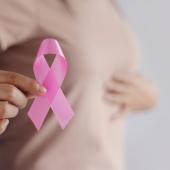Although very popular in East Asia, medicinal mushroom therapies are still largely unknown in western countries. In fact, medicinal mushrooms have been used to complement standard cancer treatments in Asia for more than 30 years. That's why we thought it was important to highlight the role medicinal mushrooms can play in supporting the immune systems in patients receiving cancer therapies such as chemotherapy or radiation. To help us understand the opportunities and challenges of using medicinal mushrooms in naturopathic oncology, we invited Dr Michael Traub to share his knowledge and experience on the subject. Dr Traub has a long and distinguished career in naturopathic medicine and possesses a special expertise in medicinal mushrooms, particularly as it pertains to naturopathic oncology.
Key Take-Aways
- Protective Role Of Medicinal Mushrooms Primarily, medicinal mushrooms provide immune support during chemotherapy and radiation, as well as preventing recurrence after treatment. Medicinal mushrooms can also be used in a preventive setting for patients at high risk for cancer. For example, good evidence suggests that medicinal mushrooms will help to prevent the transition of colon polyps into cancer.
- Which Mushrooms Are Most Effective? Turkey Tail, or Trametes versicolor (aka Coriolus versicolor), is the “go-to” for most cancers. An impressive level of evidence exists for its safety and effectiveness. The common White Button mushroom has therapeutic effects on hormonal cancers like breast cancer and prostate cancer. Lion’s Mane (Hericium erinaceus) looks unlike any other mushroom and is used primarily as a neuro-regenerative agent.
- Turkey Tail and Lung Cancer Turkey Tail has also been found to possess efficacy in survival rates of patients with lung cancer. Freeze dried Turkey Tail mycelium powder was evaluated for women with stage one to three breast cancer. Significant decreases in the white blood cell counts and natural killer cell activity were observed at the end of radiation therapy. Also, Turkey Tail has been found effective for other cancers including rectal cancer and prostate cancer.
- Active Components In Mushrooms The actual mushroom cap is densely composed of polysaccharides, long chain sugar molecules in various formations depending on the species of mushroom. These polysaccharides are what gives each type of mushroom it's unique activity, but they all are based on this underlying polysaccharide composition referred to as beta-glucans. These beta-glucans are the active constituents of medicinal mushrooms.
- Reishi Mushrooms Reishi mushrooms, also known as Ganoderma lucidum, have been shown to be effective in the treatment of breast cancer and also in the prevention of colorectal cancer. They should be offered to patients who have polyps on colonoscopy, which is a very common finding, and the patients should be advised that they are at an increased risk for colon cancer.
Patients who have been given Reishi with chemotherapy and radiation were 50% more likely to respond positively compared to those who had chemo or radiotherapy alone.
- Time Course and Dosage For Therapy For breast cancer, research has shown that at two weeks there were improvements in immune function. These benefits occur with doses of at least 800 mg of Reishi extract three times a day. Most studies suggest that higher doses work better than lower doses.
- Synergistic Actions Between Mushroom Types In a preclinical trial where researchers combined Turkey tail and Reishi, they found that 2 + 2 did not equal 4, but equaled more than four, so there was definitely synergism between the two. Sometimes It is best to utilize these mushrooms together, and rather than prescribing only 6 grams of Turkey tail, give 3 grams of each one.
Key Quote
“I encourage clinicians to examine the evidence for themselves and familiarize themselves with these amazing medicines. Use them in high doses with cancer patients with confidence in their safety and effectiveness in improving outcomes. Always use the fruiting body of the mushrooms, not mycelial products.”
Dr Michael Traub ND FABNO
==
The opinions expressed in this Nutramedica program are those of the guests and contributors. They do not necessarily reflect the opinions of Nutritional Fundamentals For Health Inc.
This video is intended for licensed or registered health professionals and students of health professions only. These statements have not been evaluated by the Food and Drug Administration. Information contained in these programs is not intended to diagnose, treat, cure or prevent any disease.



